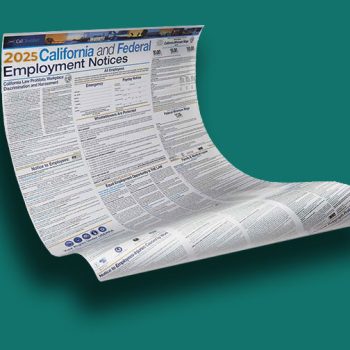
Don’t Let D.E.I. Die: Why? Must be Revived More Than Ever
- On 13 January 2025
- Posted by Chantal Mariotti
Blog by Lori Gentles and Lisa M. Sanchez – Co-founders, The Positive Platform (TPP)
In corporate America, organizational programmatic expansions and initiatives are often publicly implemented due to social movements, contemporary leadership theories and process improvement efforts. Unfortunately, these expansions quickly become the “sacrificial lamb” ceasing to exist as organizations retract and regress to status quo practices. Organizations reacted to the death of George Floyd in May 2020, by implementing diversity programs, publishing diversity statements, sponsoring Employee Resource Groups and appointing chief diversity officers.
The Program de Jour on the chopping block is DEI or diversity, equity and inclusion. America is at an inflection point in terms of its commitment to DEI values and organizations are announcing the elimination of their DEI teams, funding, and structures. It has become the proverbial “hot potato.” There is so much to do with the potato, but no one wants to hold onto it long enough to see its evolution.
HR practitioners and leaders must ensure that these values don’t “die.” DEI should focus on capitalizing on the diverse and unique variances in style, approach, perspective, and experience to produce the best solutions, ideas, and innovations. DEI is about people not systems. Leaders often say, “People are our greatest asset.” If that statement is true, organizations should demonstrate their commitment through continued supportive efforts.
The top five reasons why DEI is threatened today is because organizations have made the following mistakes:
Mistake 1: Labeling DEI as a Program
Language drives behavior. DEI is often labeled as an initiative, an add-on benefit or a program. These words are inherently tenuous, which can lead to easy program discontinuation. The word “program” connotes a beginning and an end. When you label DEI as a program – people will expect to attend one or two mandatory training sessions and believe that to be the end as they move on to the next initiative.
Mistake 2: Trying to “do” DEI
Organizations hired chief diversity officers and charged them with making DEI happen. This one-person, minimal budget office was responsible for the organization “doing” DEI. The problem is that you can’t “do” a value. You embrace and live values. DEI is everyone’s responsibility and should be driven from the top. Values should be embedded into every aspect of the organization – policies, programs, services, and business practices — organically.
Mistake 3: Focused on Policy instead of Practice
Organizations post their diversity statements on recruitment brochures, their websites, and corporate communications. However, these organizational policy statements don’t align with practice. We’ve discovered that unwritten policies drive daily practices and experiences, leaving employees confused. Employees focus on what you do not what you say.
Mistake 4: Limited Conversation to Race and Gender
Race and gender issues are relevant, and we must continue to address disparities and unfair treatment based on these unmalleable biological factors. However, we cannot neglect to discuss other forms of diversity that are problematic to cultivating a welcoming and engaging environment. While organizations made strides to increase gender and race representation within the organization, we still hear reports of exclusion and inequity. These experiences often stem from subtle and hidden forms of biases and generational differences that, if left unchecked, lead to obvious forms of disparate treatment. This shows that diverse representation alone does not equal inclusion.
Mistake 5: Did not Prime the Culture
Culture eats strategy for breakfast so says Peter Drucker. Organizations that start with strategy are making a fatal error. Organizations laid out their best diversity strategy without assessing and understanding the culture. This approach is equivalent to putting fresh paint on a stained wall without priming it. The stains and cracks will eventually start to show. Culture is the foundation; it creates organizational values, norms, customs and behavioral expectations. Culture cements the why and purpose. Without culture, DEI efforts fail, automatically.
Where do we go from here?
To impact change, it is necessary to evaluate the “why?” Why is the organization eliminating DEI? What are the drivers for this change? What are the long-term impacts on employee engagement and morale?
The year 2025 represents a Kairos moment bringing opportunity to reflect and reset. Organizational leaders, including HR practitioners, must take the time to reflect on DEI and find ways to revive it in the following ways:
1.Reassess your values and ensure language alignment. Shift from DEI to ABIDE or access, belonging, inclusion, diversity, and equity. DEI is stigmatized and falsely associated with quotas, lowered standards, and reverse discrimination. ABIDE is a holistic and integrated approach to effectively running a business. These values drive daily practices that inform policy versus attempting to have policy inform practices.
- Identify and address through education other forms of diversity and subtle biases and stereotypes that negatively impact the organization. With different generations operating in organizations today, generational diversity is an area of potential conflict. Subtle biases such as attribution theory (Bing Videos) and false consensus could create exclusionary clicks and an ingroup/outgroup climate.
- Learn skills to be comfortable having uncomfortable conversations about DEI/ABIDE. If DEI is being challenged or discontinued in your organization you could “call in” a conversation regarding the motives behind the change, reaffirm if the stated values still apply, and discuss how these values will be demonstrated. Organizations either believe that access, belonging, inclusion, diversity, and equity are values and will continue with the values or they will need to admit that it was a passing fad, not truly embraced and will end.
There is more work to do to improve workplace environments. Letting DEI D.I.E. is not the answer. Instead, remain Diligent, Intentional and Empowered to engage in practices that embrace the diversity that makes organizations and employees thrive.
TPP is an education and leadership development company. Lori Gentles Is an author, entrepreneurial and a transformative change-promote with 20-plus years inspiring and leading strategic organization-wide initiatives in various complex and diverse public sector agencies. Lisa M. Sanchez is an author and HR leader since 1995 and has been featured in local and national publications including the Los Angeles Times pertaining to ABIDE, organizational culture and The Future of Work
The founders may be reached at: www.thepositiveplatform.net


